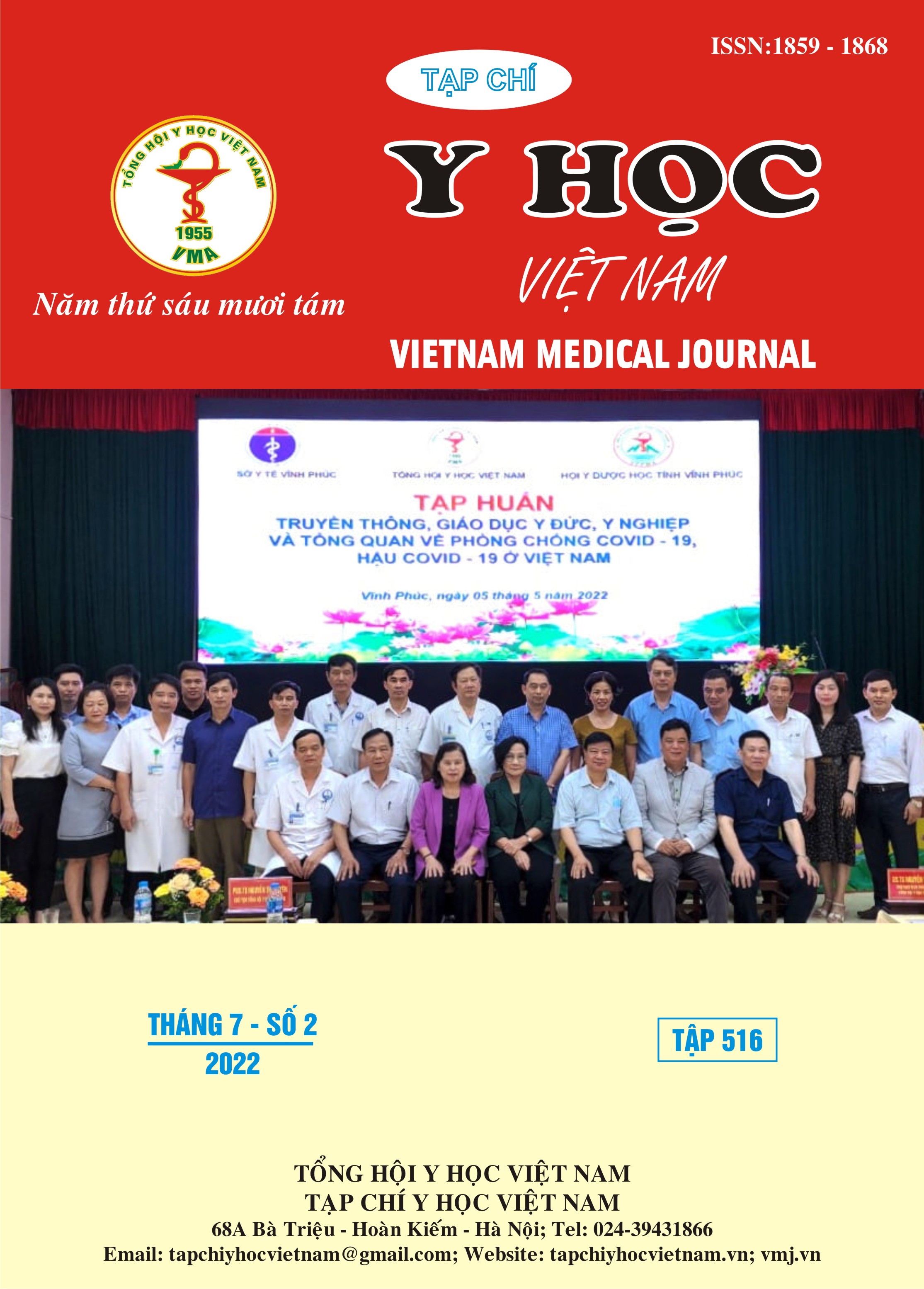GLOBAL LONGITUDINAL STRAIN ASSESSMENT BY SPECKLE TRECKING ECHOCARDIOGRAPHY IN BREAST CANCER PATIENTS TREATED AC-TH REGIMEN
Main Article Content
Abstract
Purpose: Use of 2D specle trecking echocardiography, studying left ventricular global longtitudinal strain in breast cancer patients treated AC-TH regimen. Subjects and methods: Follow-up observation containing six times 2D specle trecking echocardiography performances had been done through the AC-TH regimen treatment. The left ventricular global longtitudinal strain (LV GLS) was selected and assessed at those times. The relationship between LV GLS and chemotherapy-induced cardiotoxicity was also investigated. Results: 33 patients involving the research, in which the age median was 45,6 8,7, 100% female, 84,8% patients having no cardiovascular risk. LV GLS median was -16,96% 2.95, and -16,09% 3,24 in cardiotoxicity group. It has gradually decreased at the following follow-up times, lowest at T2. There was a relationship between LV GLS and chemotherapy-induce cardiotoxicity with cut-off at -16,05% (95% CI: 0,570 – 0,769). Conclusion: LV GLS decreased at the following follow-up times in breast cancer patients treated AC-TH regimen and it is a predictor of chemotherapy-induce cardiotoxicity in those patients.
Article Details
Keywords
Left ventricular global longtitudinal strain, 2D specle trecking echocardiography, cardiotoxicity
References
2. Hooning MJ, Botma A, Aleman BM et al. (2007). Long-term risk of cardiovascular disease in 10-year survivors of breast cancer. J Natl Cancer Inst. 99(5):365–75
3. Yancy CW, Jessup M, Bozkurt B et al. (2013). American College of Cardiology Foundation; American Heart Association task force on practice guidelines. ACCF/AHA guideline for the management of heart failure: a report of the American College of Cardiology Foundation/ American Heart Association task force on practice guidelines. J Am Coll Cardiol. 62 (16):e147–239 Epub 2013 Jun 5.
4. Jelena Celutkien et al. (2020). Role of cardiovascular imaging in cancer patients receiving cardiotoxic therapies: a position statement on behalf of the Heart Failure Association (HFA), the European Association of Cardiovascular Imaging (EACVI) and the Cardio-Oncology Council of the European Society of Cardiology (ESC). European Journal of Heart Failure 22, 1504–1524
5. Patrick Collier, Dermot Phelan, Allan Klein. (2017). A Test in Context: Myocardial Strain Measured by Speckle-Tracking Echocardiography. Jounal of the American College of Cardiology. Vol. 69, No. 8, 1048.
6. Russell S.D, Blackwell K.L, Lawrence J. et al. (2010). Independent adjudication of symptomatic heart failure with the use of doxorubicin and cyclophosphamide followed by trastuzumab adjuvant therapy: a combined review of cardiac data from the National Surgical Adjuvant breast and Bowel Project B-31 and the North Central Cancer Treatment Group N9831 clinical trials. J Am Soc Clin Oncol.. 28(21), 3416–3421
7. C.E.H. Scott-Conner, P.R Jochimsen, H.R Menck et al. (1999). An analysis of male and female breast cancer treatment and survival among demographically identical pairs of patients. Central Surgical Association. Volume 126, issue 4, p775—781.
8. Laura Ottini, Carlo Capalbo, Piera Rizzolo et al. (2010) HER2-positive male breast cancer: an update. Breast Cancer (Dove Med Press). Volume 2, 45-58.


